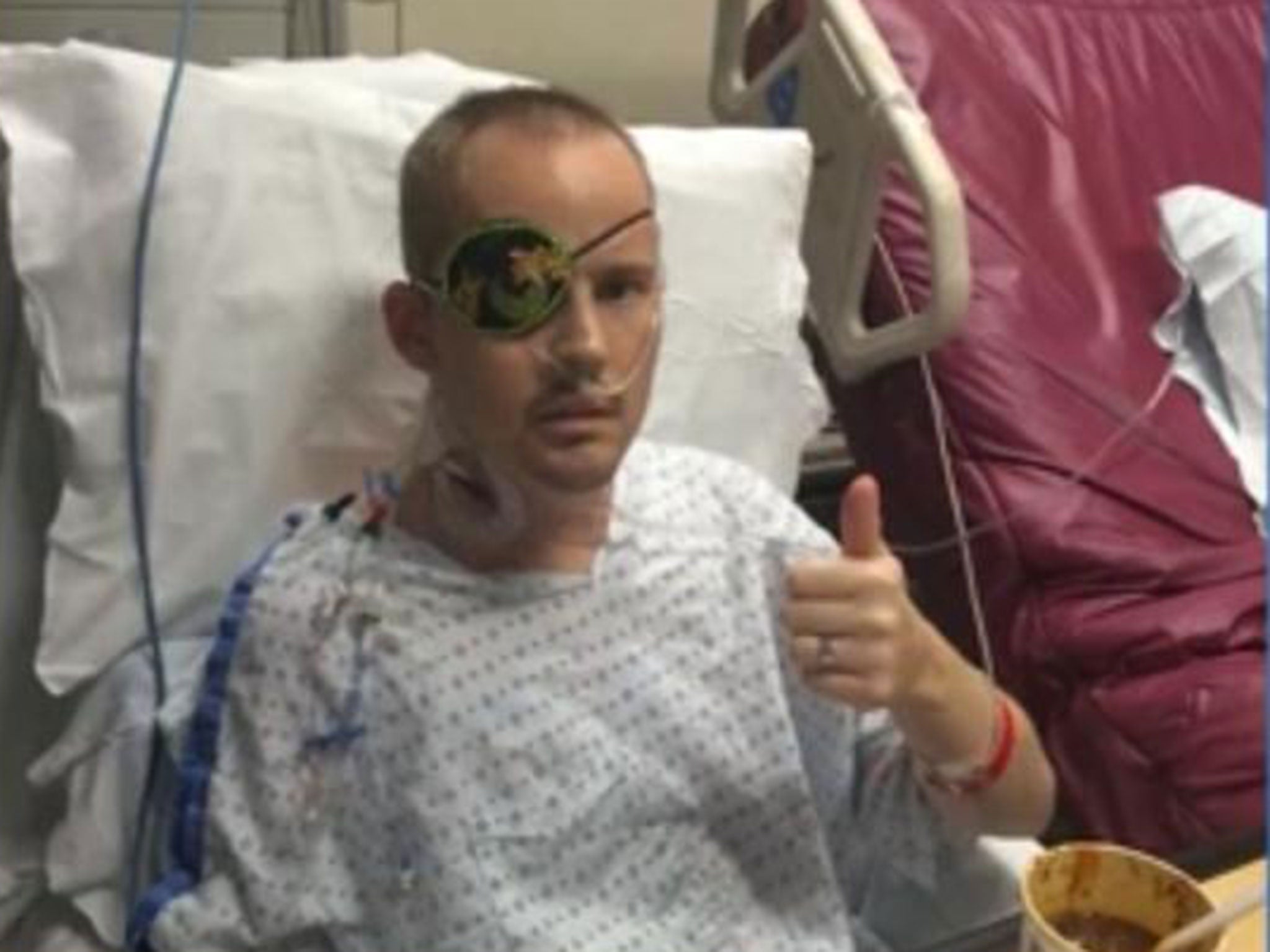Could HIV help cure cancer? Leukaemia patient Marshall Jensen in remission after virus is used in ground-breaking treatment
A harmless form of the virus was used to target and kill cancer cells

A man suffering with an aggressive form of leukaemia is now in remission after doctors used the HIV virus to target and kill cancer cells.
Marshall Jensen was diagnosed with acute lymphoblastic leukaemia, a cancer of the white blood cells, shortly after getting married in 2012.
Mr Jensen, 30, and his family left their home in Utah and spent the next two years travelling around America in search of a treatment that could fight the cancer, KSL reports.
In Philadelphia, Mr Jensen learned about a rare, experimental treatment harnessing the HIV virus’ ability to insert new genes into patient’s T-cells in order to kill the otherwise incurable cancer.
The treatment is the result of two decades of research by Dr Carl June and his team at Penn Medicine, who produced a study on the “leukaemia-specific killers”.
"It's a disabled virus," Dr June explained. "But it retains the one essential feature of HIV, which is the ability to insert new genes into cells.”
The therapy works by taking billions of T-cells from a cancer patient. The DNA in the cells is then altered with a harmless form of the HIV virus. The cells are programmed to recognise and kill the cancer and are placed back inside the person’s body.
Dr June said the cells act as “serial killers” and continue to lie dormant in the body unless the cancer returns. His team found that one of the modified T-cells can kill about 1,000 tumour cells.
The treatment has been successful so far and Mr Jensen returned home on Thursday after being told he is in remission.
A total of 30 children and adults received the treatment in Dr June’s study. Twenty-three of the patients are still alive and 19 have achieved complete remission.
Mr June will begin trials on patients with pancreatic cancer in the summer 2015.
The study, Chimeric Antigen Receptor T Cells for Sustained Remissions in Leukaemia, has been published in the New England Journal of Medicine.
The Independent has contacted Mr June for comment.
Subscribe to Independent Premium to bookmark this article
Want to bookmark your favourite articles and stories to read or reference later? Start your Independent Premium subscription today.

Join our commenting forum
Join thought-provoking conversations, follow other Independent readers and see their replies